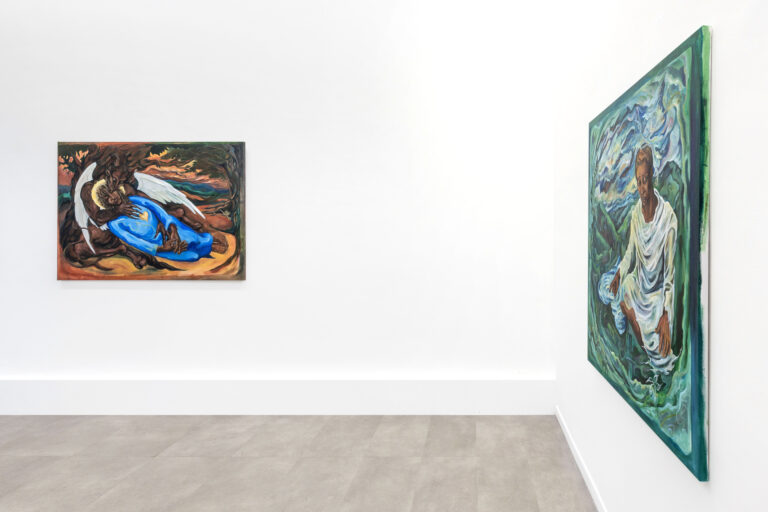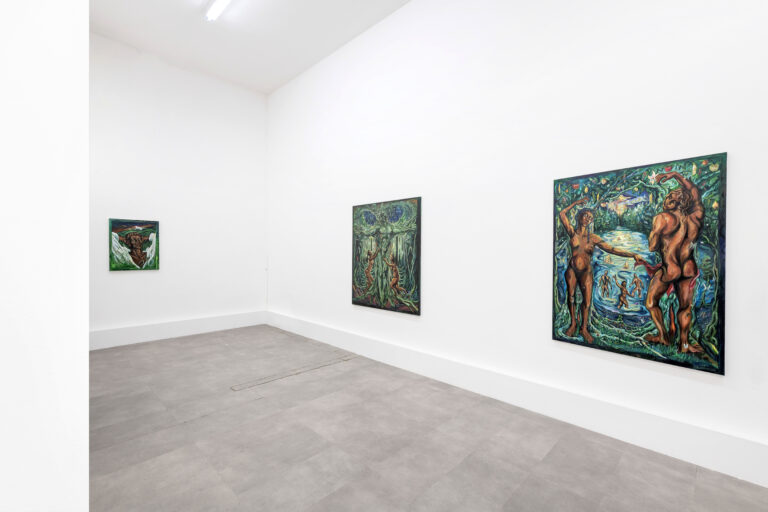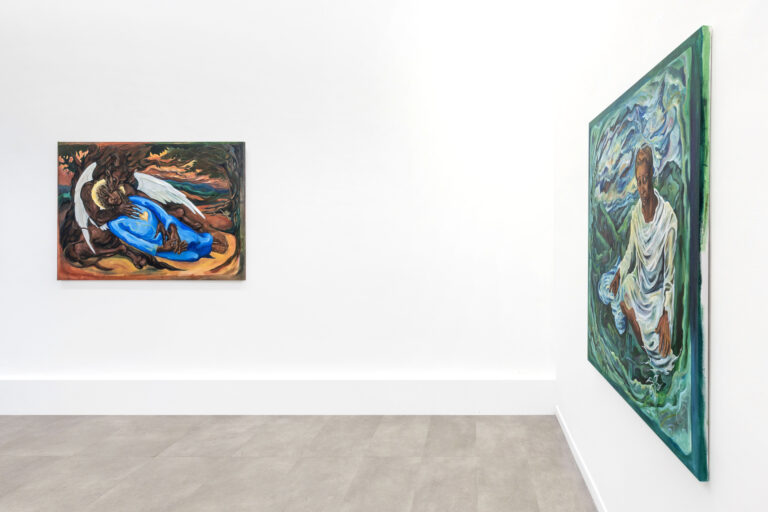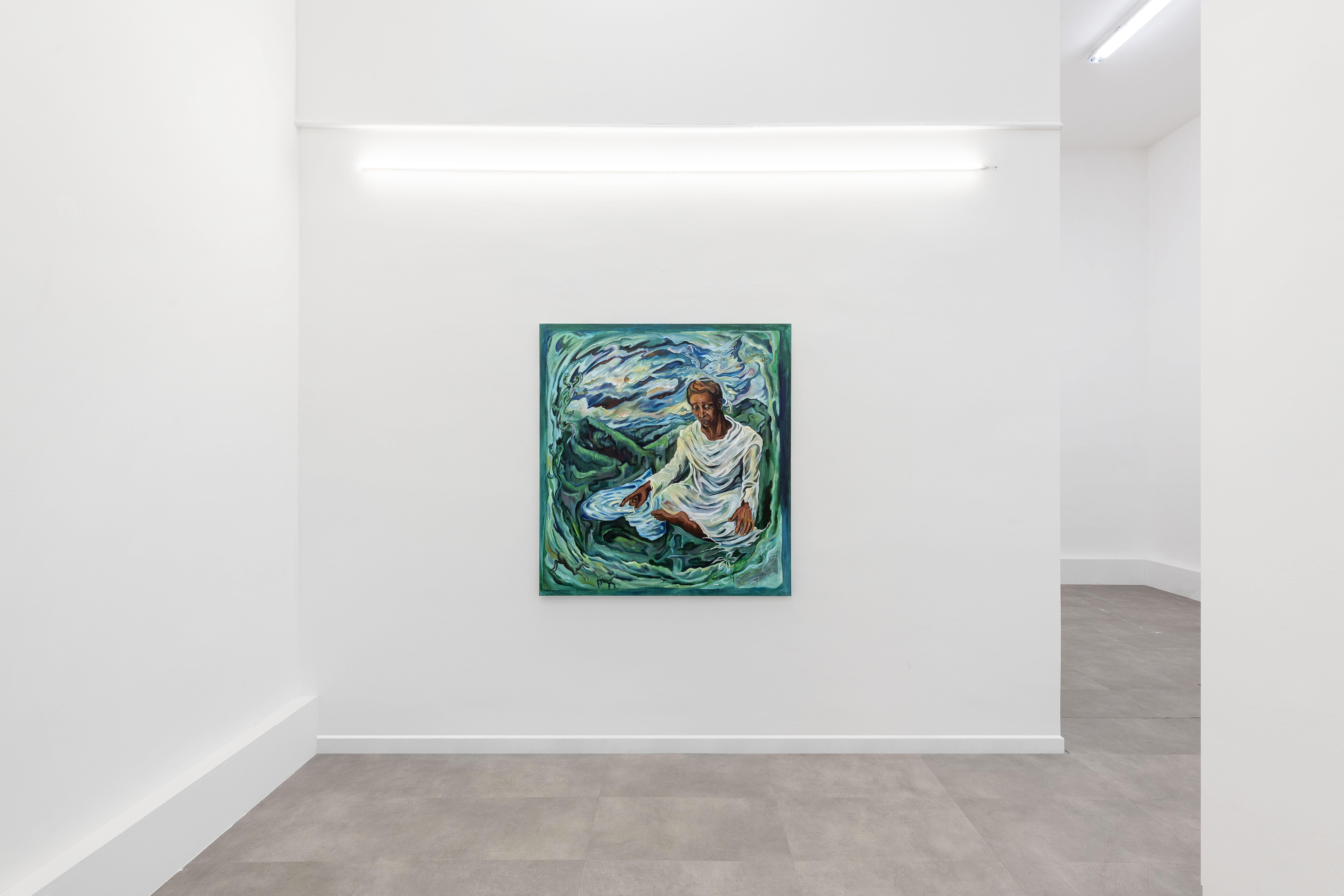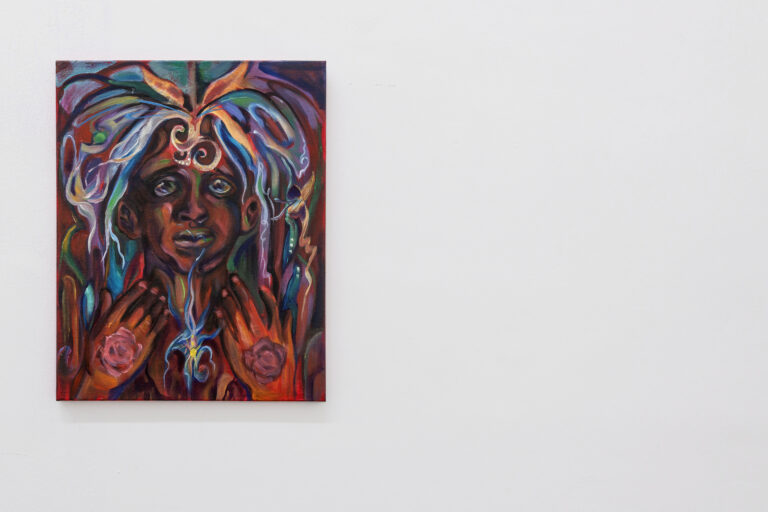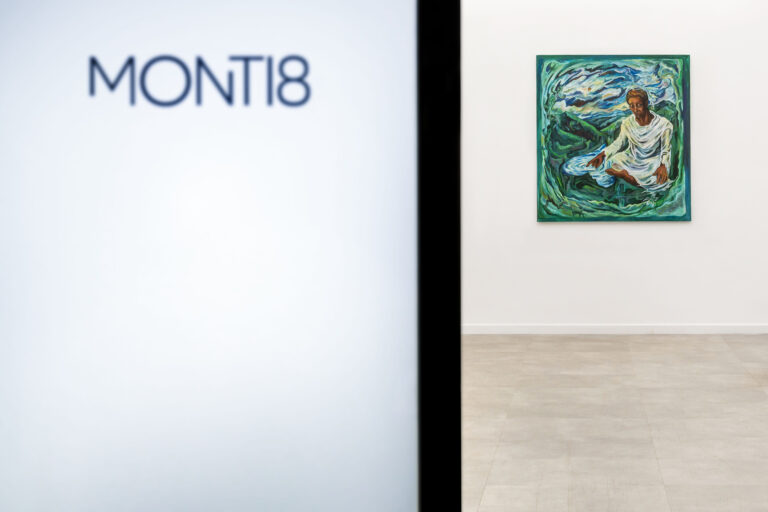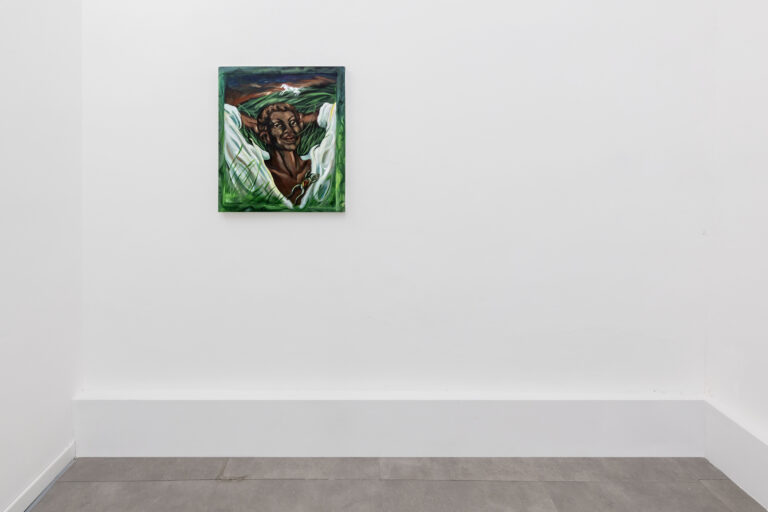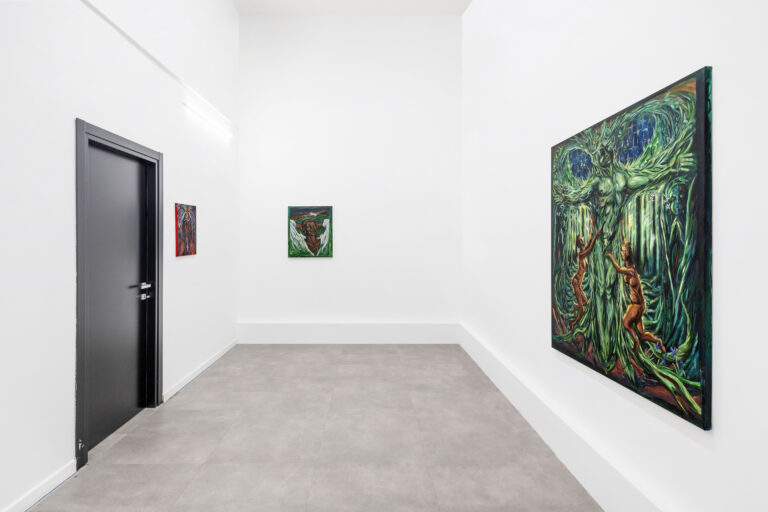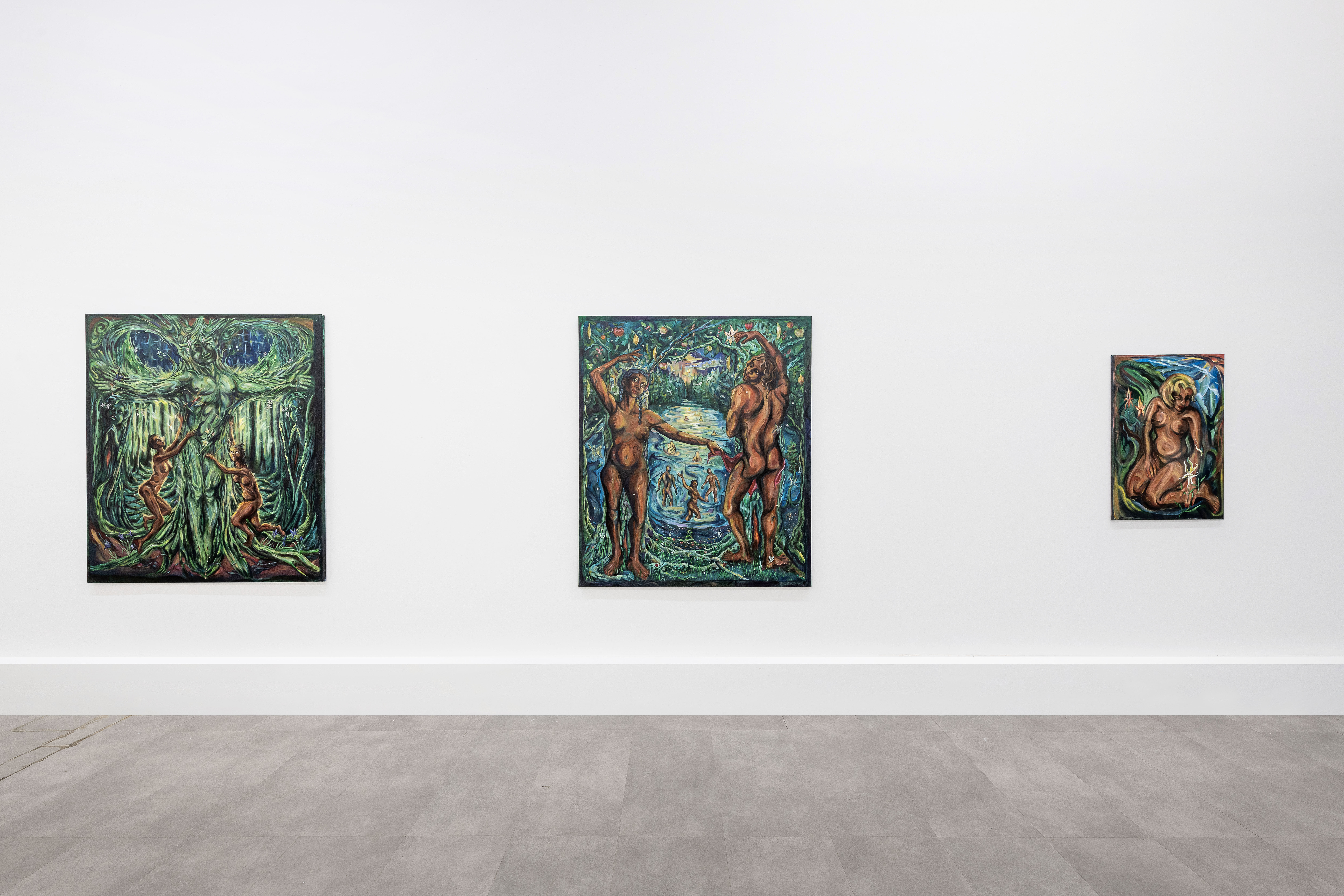eden seifu
nature boy
12th July – 28th august 2024
MONTI8 is thrilled to present “Eden Seifu – Nature Boy”, first European exhibition of the artist.
Eden Seifu was born in 1996 and lives and works in Seattle. On this occasion Seifu presents a new body of paintings that start a new direction in her practice and are imbued with new meanings and references, even though her style is always recognizable. Wether working on a large scale or small size, every work conveys a strong energy nourished by mysticism, by the relationship between man and nature and by the personal story of the artist, combining elements that remind something magic and ancestral.
As the artist wrote in the text for the show, this new series is the result of a full immersion in life and nature: The eight paintings in Nature Boy are but mere additions to a lineage that very well may extend back to when humans could first fathom time. They synthesize stories from around the world, varying traditions and numerous veins of mysticism with the artist’s personal tales. A backpacking trip the artist took connects to the arduous route a priest in Tigray must take to get to a holy site, a night of friends skinny-dipping is at once an echo of The Fall and Ovid’s account of the creation of the Salmacis fountain.
The title Nature Boy is an homage to the Nat King Cole song wrote in 1961, which tells tell the story of a young shy boy – named Eden too! – with a real thirst of Knowledge. But after the ecnounter with an old wise man, he will learn that the only thing that matters in life is just to love and be loved in return.
TEXT
Young Eden, who fancied herself shy and sad-of-eye, aspired to resemble the erudite, well-traveled figure in the song “Nature Boy,” popularized by Nat King Cole. Many summers were spent in libraries and on the internet in imitation of a cloistered monk who rejected the world for a devotion to learning, inner-travel, and toiling. Though wishing to be similar to the monks of a past age, she still has no real area of expertise. Instead of the deep, focused study by candlelight that attention spans of yore could withstand, the dilettante nature of learning in the internet age is reflected in her paintings. They join together wide-ranging references in an attempt to examine the oneness underlying multiplicity that ecology, the holy trinity, and theories of nondualism hint towards.
Eventually, Eden got bored, and went outside. While humbly embracing the world of sensation, she learned two things: that the stage name of the original songwriter of “Nature Boy” was also “Eden“, and that feeling, knowledge and love are one. It was only then, by laughing, playing, touching, talking, crying, dancing, tasting, feeling, and more, that the written word became flesh, and she experienced firsthand the oneness insisted upon by the mystics. She made her way out of the library, and into the world…
Her time was spent differently, but life is still an investigation for Eden. These paintings both display the findings and add to the unending vista of evidence. The lyrics of Nature Boy are in a narrative form, which appealed to Eden‘s life-long fascination with story-telling. It surely must be one of the oldest means of preserving and sharing information, perhaps because beauty, strangeness, pathos, and fun are excellent carriers of knowledge. The eight paintings in Nature Boy are but mere additions to a lineage that very well may extend back to when humans could first fathom time. They synthesize stories from around the world, varying traditions and numerous veins of mysticism with the artist’s personal tales. A backpacking trip the artist took connects to the arduous route a priest in Tigray must take to get to a holy site, a night of friends skinny-dipping is at once an echo of The Fall and Ovid’s account of the creation of the Salmacis fountain. These paintings emanate from the heart with the mind as a passenger, rather than the other way around. “The greatest thing/You shall ever learn/Is just to love/And be loved in return.” It was the recognition of the song’s closing lyrics, once dismissed as frivolous romance by the artist, that allowed these paintings to be born. The acceptance and embodiment of this sung adage marks the artist’s coming of age as a painter and person, and she is now a both grown woman, and the Nature Boy.
Eden Seifu
installation view
